Formative assessment is not a set of stand-alone tools, strategies, or tests that teachers use. Rather, it is a daily process of inquiry that teachers and students do together to better understand the status of learning in the moment and how to move learning forward during lessons. When students use this process: analyzing evidence, giving and getting feedback from peers, and engaging their metacognition to sense where they are in their learning and plan the next steps, the promise of formative assessment is realized. This set of resources support teachers (and students) who are in the early stages of formative assessment practice.
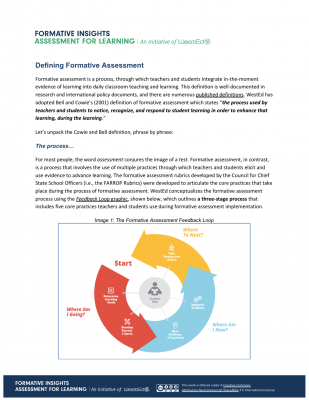
Defining Formative Assessment
Bell and Cowie’s definition of formative assessment as a process of evidence use adopted by WestEd. This resource unpacks their definition and introduces the formative assessment feedback loop.
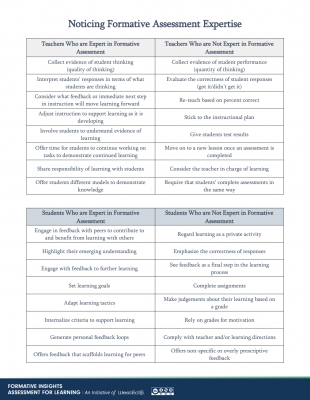
Noticing Formative Assessment Expertise
This table outlines teacher and student expertise in formative assessment. This is a helpful introductory tool to explore expectations and hopes for formative assessment practices for teachers and students.
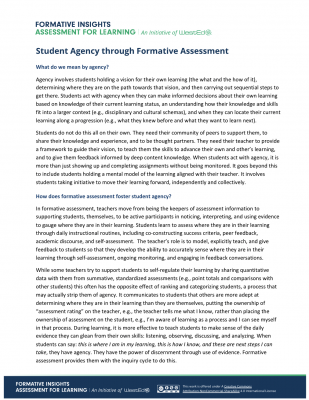
Student Agency through Formative Assessment
Students must interpret evidence of learning and apply it to move their learning forward. This reading explains how formative assessment fosters learner agency and how other assessment types can hinder its development.

Considering the Feedback Loop in Formative Assessment Lessons
Teachers often misconceive formative assessment as an overlay to existing instruction. Understanding the feedback loop teaches you how students are engaged in learning at every stage of the formative assessment process.
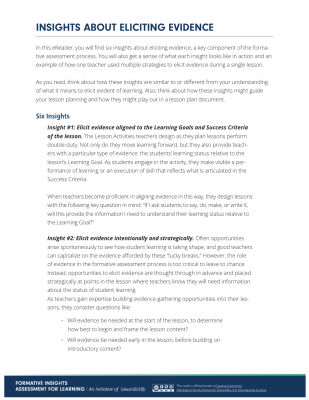
Insights about Eliciting Evidence
Eliciting evidence during learning is quite different from traditional conceptions of assessment data. This reading offers six insights to help understand evidence-use practices in formative assessment.
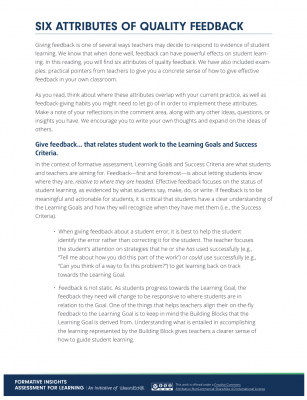
Six Attributes of Quality Feedback
Instructive feedback can have powerful effects on student learning. Outlined in this reading are 6 insights that support teachers in creating routines where students receive individualized feedback during lessons.
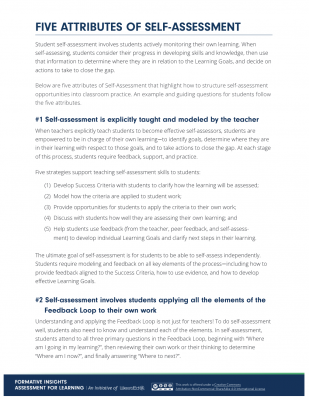
Five Attributes of Self-Assessment
This resource helps teachers plan and implement self-assessment routines, so students can consider their progress in learning new skills and knowledge to determine where they are in relation to the learning goals.
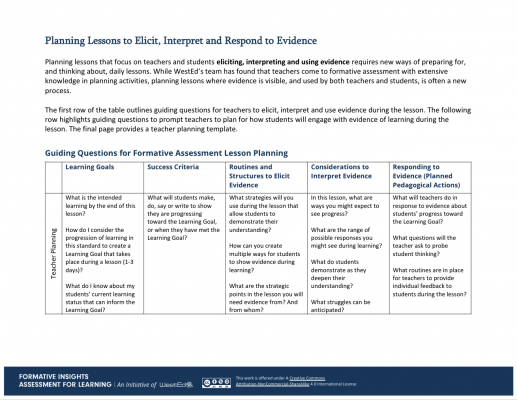
Lesson Planning to Elicit, Interpret and Respond to Evidence
A template to guide teachers' thinking, ahead of lessons, to reflect on how they will elicit evidence of learning, how learning will take shape, and what approaches they might use to consolidate students’ understanding.
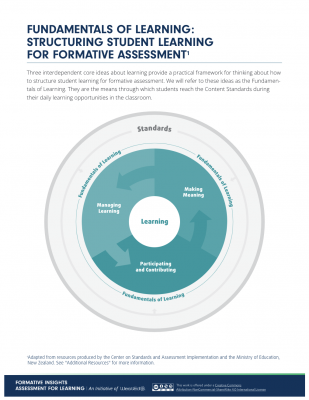
Fundamentals of Learning
This framework outlines three constructs for student learning — how students make meaning, participate and contribute, and manage their learning.

